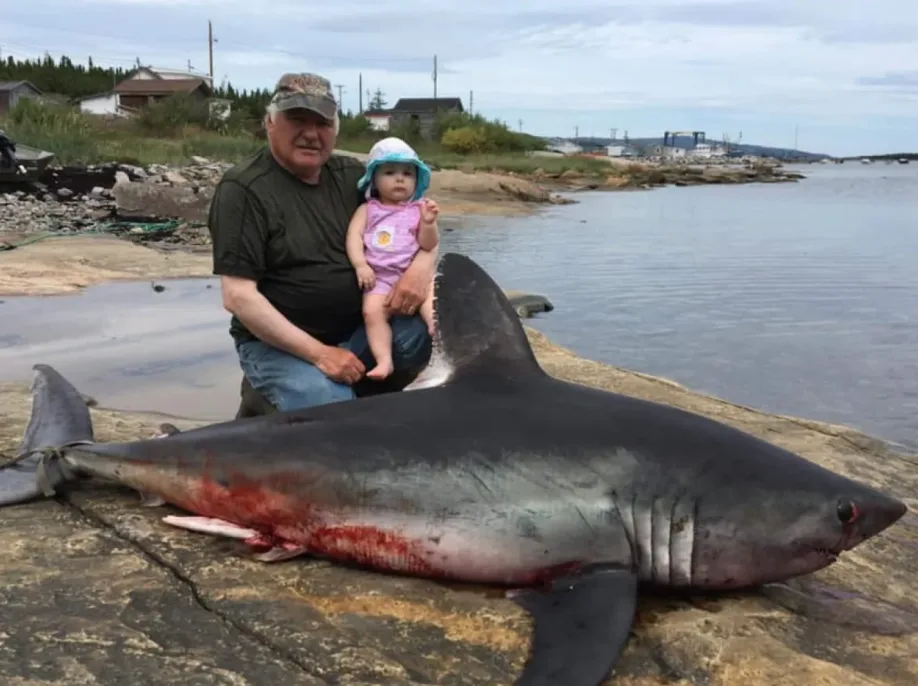
That's no seal: Makkovik man accidentally nets shark
A Makkovik man netted a sea creature far bigger than the salmon he was hoping for this week, unintentionally hauling in a porbeagle shark in the latest close encounter with sharks in Newfoundland and Labrador waters this summer.
Tony Andersen headed out from shore late in the evening on Wednesday, hoping to see a salmon or Arctic char in his net. But when he reached the spot, the net was sunk below the surface, weighed down by something.
"I figured it might be a seal, or a harbour porpoise or something —they've been caught in nets like that," he said.
As he hauled it up, he could see the tail tangled in the net, and knew by its shape that was no porpoise, but a large, greyish shark, still in the water.
"He was dead at the time, anyway, I was hoping," said Andersen.
Alone with heavy nets and the shark, he towed it all back to shore slowly where men waiting at the dock confirmed it was a porbeagle shark. The accidental catch quickly became the centre of community attention.
"Lots of people came over yesterday to have a look," he told CBC Radio's Labrador Morning.
INCREASED SIGHTINGS
Andersen said shark sightings off Makkovik are up in recent years, with several spotted already this summer.
"A few have been caught here over the last few summers in salmon nets and that," he said.
"Seems like they're seeing them more, more coming around in the last few years. People will be out jigging and see them around the boats or try to take the fish from them off the hook."
Porbeagles are one of the first shark species to swim up around Newfoundland and Labrador waters each summer, arriving when waters warm to between two to six degrees, according to DFO scientist Carolyn Miri.
The species does like to snack on cod, and Miri reminded people out jigging to have a pair of work gloves and a bolt cutter handy to help sharks swim free if they find themselves hooked.
Andersen hazarded a guess that the anecdotal uptick in shark sightings could be due to warming ocean temperatures along his section of the Labrador coast.
Miri, however, said "we don't have enough data yet to be able to see what's happening with these large migratory sharks, and the changing water temperatures in our marine waters."
She does ask anyone who sees a shark anywhere around the province to let DFO know.
"The public plays a very important role in our multi-year shark research around the province," she said.
"We're begging people who are enjoying a day on the water, or walking along on the beach, if they see a shark anywhere in Newfoundland and Labrador, dead or alive, please be a citizen scientist."
Miri asks people to snap a picture, if possible, and record the time and location and send it along to DFO.
Thumbnail courtesy of Tony Andersen
This article was oringinally published for CBC News










